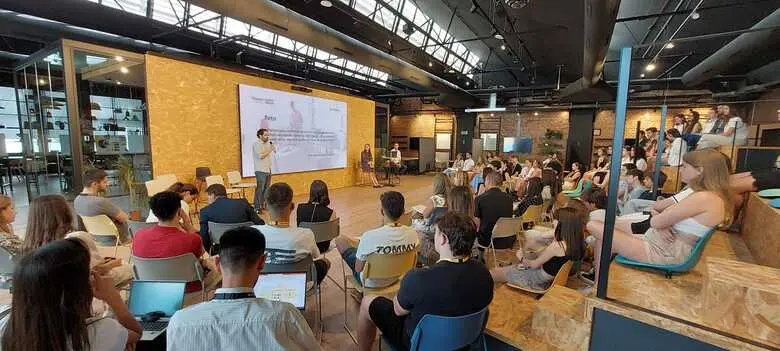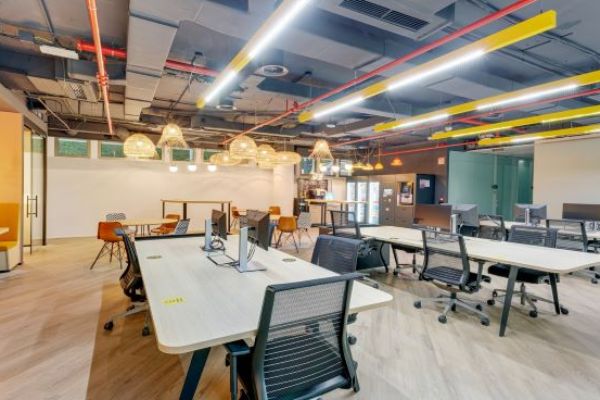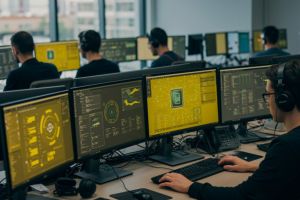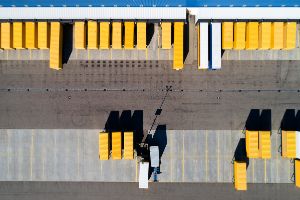University talent for the security challenges of the immediate future
Prosegur has collaborated with different working groups of students from the University of Deusto to seek solutions and improvement to four immediate challenges in the security sector: robotics for security, 360º cameras with artificial intelligence, the Metaverse and digital twins.
.webp)
Table of contents:
Customer orientation: generate desire
"The more feedback is received from the company, in this case Prosegur, the more real the immersion is for our students and the more motivated they are to propose ideas. Ideas, moreover, that are very characteristic of their generation: young digital natives, in their twenties, many of whom do not have their own home or business, so their vision of opportunities is much broader thanks to this generational and digital leap", explain professors Leire Bereziartua and Aiur Retegi.
In this way, for example, if the technology of digital twins allows a duplicate in the virtual world of a physical business, where simulations can be done with a global control of sensors and surveillance cameras, the university students proposed another use for this technology. "One of the research groups proposed a project on how to take advantage of Digital Twins in a music festival or concert, to analyse the flow of people, different points of the installation that can be equipped with sensors and detect or predict crowds or in case of fire. This technology allows us a "bird's eye view" of the enclosure, from the outside, and we could observe what is happening precisely where, what would be the safest alternative for action, how to manage flows of people, prevent crushes or notify security guards who are closer to the point where the problem has been detected", describe the teachers.
Technology and robotics for a new generation
Find out more about Talent
What determines the feeling of security of people and companies? Can technology and innovation help our security guards improve that security? Prosegur, as an international leader in the sector, has been investigating and assessing possible threats to people, corporations or facilities that need protection for many years. And this line of work gave rise to the question: "How can we create better experiences related to security services for the immediate future?".
In recent years, changes in society, which is becoming increasingly global, interconnected and digital, have posed new security challenges that can be addressed thanks to technology, innovation and the emerging talent of digital natives. In this context, Prosegur has strengthened its partnership with the University of Deusto, through four approaches proposed to the students of Laboratory III of the Degree in Industrial Design Engineering, directed by professors Leire Bereziartua and Aiur Retegi. The four challenges taken on by the university students could be from a dystopian future, if it were not for the fact that they are already here and relate to possible and immediate threats: robotics applied to security, 360º cameras with artificial intelligence, the metaverse and digital twins.
Innovation in security
For several decades, companies have been becoming increasingly aware that they can use Industrial Design not only as a product configurator, but as a layer of tools and processes that improve their competitiveness in the market. This strategic use of design is what has prompted Prosegur to search for innovative ideas and emerging talent at the University of Deusto. The objective is to propose tools ranging from the theoretical to the practical, through specific projects. But not only look for innovative ideas, but "who" is behind those ideas.
"Some students particularly stand out and it is vital that we detect this talent as early as possible, because we are looking for the young leaders of the future who can meet our company's needs. The presentation event was attended not only by the heads of Prosegur's technical teams, which are involved in the areas of the four challenges, but also of the Human Resources team, so that they can recognise this talent first-hand", says García Espinel.
This will respond to the three innovation models that identify the design of Prosegur products. First, Desirability (generate desire), an aspect in which the Design team plays a key role, aimed at detecting and satisfying the customer's needs. The second phase is Feasibility , in which technology experts prototype a model to test with the client whether the technology is capable of meeting the need. And last but not least, would be the Scalability phase, in which all disciplines are involved and a robust, replicable and reliable final product is created to develop the service, in which the participation of the young designers of the future will have been key.
"Prosegur is the company that protects you in both the physical world and the digital world. And to connect both worlds we have innovation in technology. When we talk about security robots, we talk about hardware: it is something physical, but you are commanding through a digital environment", says José Daniel García Espinel, Global Director of Innovation and Product Development for Security at Prosegur.
But there are many more challenges including the Metaverse, the new world in which many companies are already doing business by selling assets through NFTs. "All of these new technologies imply many possibilities, but they are not without risks. Security plays a key role. For example, Digital Twin technology allows you to replicate a physical space, such as your customers' office buildings, in a digital environment. This allows you to perform maintenance tasks more efficiently by quickly establishing where any problem with a security device has occurred. 360-degree cameras with artificial intelligence also enable you to receive notifications on your mobile of events that are really important to you, such as when they detect that a person has entered your house", says García Espinel.
The company launched these four great security challenges so that university talent could detect and develop those use cases and opportunities in which technology can offer a competitive advantage. For ten weeks, sixty students divided into 14 teams have dedicated themselves to the contextualisation, conceptualisation and development of proposals for new services or improvements to existing ones, in close collaboration with Prosegur managers, to assess viability and business opportunities that would be feasible. On June 15, the results will be shared and the projects will be presented to the Prosegur technical teams directly involved in the different business areas.
"One of the aspects that most surprised us about this collaboration was the creative thinking of the students", says García Espinel. "For example, we present the use case of a robot for security, where an important feature is deterrence. However, the students gave us a completely different perspective: 'Why is only a deterrent use proposed? Perhaps in a crowded environment, where a small child has gone missing, you can take advantage of this technology, its ability to swiftly cover a long distance, to locate the parent and child. And for this it is necessary that the child does not see it as a threat'. We really liked that different perspective, completely alien to our world." Another of the teams proposed that this same robot could be part of the security service offered by nightclubs, accompanying customers on their way out to their car or taxi, for example, to prevent robberies or identify problems en route.



.jpg)
.webp)
